While this is a good start and certainly better than nothing, there is a whole other level of nutrition which gets less attention, but is equally, if not more important... Micronutrients (i.e. vitamins and minerals) are critical, not only for your overall health and well being, but for building muscle as well.
Now the easy way out is to simply pop a multi-vitamin and "fuhgeddaboudit" (forget about it). But this simple "Band-Aid" approach is not the best way to deal with your muscle building nutrition.
In fact if you have a micronutrient deficiency you could short change the entire muscle building process and bring your gains in the gym to a screeching halt... Even if you are eating a high calorie diet!

So what I've posted below is a listing of the top 25 most critical vitamins, minerals, and electrolytes. Along with the recommended daily intake for bodybuilders and the best food sources where you can get these micronutrients.
===========================
Vitamin A (carotene) - recommended intake 5000 IU/day
Is used for the formation and maintenance of skin, hair, and mucous membranes. Vitamin A helps with bone and tooth growth. It helps you see in dim light.
Best sources of vitamin A are: yellow and orange fruits and vegetables, green leafy vegetables, fortified oatmeal, liver, and dairy products.
Helps the body release energy from carbohydrates. Helps with growth and muscle tone.
Best sources of vitamin B1 are: fortified cereals and oatmeal, meats, rice, pasta, whole grains, and liver.
Helps the body release energy from protein, fat, and carbohydrates.
Best sources of vitamin B2 are: whole grains, green leafy vegetables, organ meats, milk, and eggs.
Involved in carbohydrate, protein, and fat metabolism
Best sources of vitamin B3 are: meat, poultry, fish, enriched cereals, peanuts, potatoes, dairy products, and eggs.
Vitamin B5 (pantothenic acid) - recommended intake 10 mg/day
Helps in release of energy from fats and carbohydrates.
Best sources of vitamin B5 are: meats, whole grains, legumes, fruits, and vegetables.
Helps build body tissue and aids in metabolism of protein.
Best sources of vitamin B6 are: fish, poultry, lean meats, bananas, prunes, beans, whole grains, and avocados.
Vitamin B12 (cobalamin) - recommended intake 6 mcg/day
Aids cell development, functioning of the nervous system, and the metabolism of protein and fat.
Best sources of vitamin B12 are: meats, dairy products, and seafood.
Involved in metabolism of protein, fats, and carbohydrates.
Best sources of biotin are: grain products, yeast, legumes, and liver.
Aids in genetic material development and involved in red blood cell production.
Best sources of folic acid are: green leafy vegetables, organ meats, peas, beans, and lentils.
Vitamin C (ascorbic acid) - recommended intake 3000 mg/day
Essential for structure of bones, cartilage, muscle, and blood vessels. Helps maintain capillaries and gums, aids in the absorption of iron. Helps boost the immune system and is good for reducing muscle soreness after a workout.
Best sources of vitamin C are: citrus fruits, berries, and vegetables
Vitamin D - recommended intake 600 IU/day
Aids in bone and tooth formation, helps maintain heart action and nervous system.
Best sources of vitamin D are: fortified milk, sunlight, fish, eggs, butter, and fortified margarine.
Vitamin E - recommended intake 1200 IU/day
Protects body cells, body tissue, and essential fatty acids from harmful destruction in the body. Helps boost the immune system and is good for reducing preventing some of the side effects from overtraining such as infection and sickness.
Best sources of vitamin E are: multigrain cereals, nuts, wheat germ, vegetable oils, and green leafy vegetables.
Vitamin K - recommended intake 125 mcg/day
Essential for blood clotting functions and helps strengthen bones.
Best sources of vitamin K are: green leafy vegetables, fruit, dairy products, and grain products.
Minerals
Calcium - recommended intake 1000 mg/day
Calcium helps strengthen bones, teeth, and muscle tissue. It regulates heartbeat, muscle action, nervous function, and blood clotting.
Best sources of calcium are: dairy products
Chromium - recommended intake 300 mcg/day
Chromium helps with glucose metabolism and it increases the effectiveness of insulin.
Best sources of chromium are: corn oil, clams, whole grains, and brewers yeast.
Copper - recommended intake 3 mg/day
Helps with the formation of red blood cells, bone growth and health. Works with vitamin C to form elasin.
Best sources of copper are: grain products and white potatoes.
Iodine - recommended intake 150 mcg/day
Iodine is a component of hormone thyroxine; it helps in the production of thyroid hormones, which control metabolism.
Best sources of iodine are: seafood and iodized salt.
Iron - recommended intake 30 mg/day
Iron helps with haemoglobin formation. Improves blood quality. Increases resistance to stress and disease.
Best sources of iron are: meats, organ meats, and legumes.
Magnesium - recommended intake 500 mg/day
Helps with acid / alkaline balance. Important in metabolism of carbohydrates and minerals. Can improve strength by increasing protein synthesis.
Best sources of magnesium are: nuts, green vegetables, and whole grains.
Manganese - recommended intake 5 mg/day
Helps with enzyme activation; carbohydrate and fat production; sex hormone production; skeletal development.
Best sources of manganese are: nuts, whole grains, vegetables, and fruits.
Phosphorous - recommended intake 1000 mg/day
Helps with one development and is important in protein, carbohydrate, and fat utilization.
Best sources of phosphorous are: fish, meat, poultry, eggs, and grains.
Selenium - recommended intake 150 mcg/day
Protects body tissues against oxidative damage from radiation, pollution, and normal metabolic processing.
Best sources of selenium are: seafood, organ meats, meats, and grains.
Zinc - recommended intake 25 mg/day
Involved in digestion and metabolism. Important in the development of the reproductive system. Aids in healing.
Best sources of zinc are: meats, liver, eggs, seafood, and whole grains.
Electrolytes
Potassium - recommended intake 4000 mg/day
Helps with fluid balance. Controls activity of heart muscle, nervous system, and kidneys.
Best sources of potassium are: fruits and vegetables.
Helps regulate fluid balance. Helps regulate acid/base balance in the bloodstream and facilitates active cellular transport across cellular membranes.
Best sources of sodium are: salt
Eating a well balanced diet that includes lean meats, poultry, fish, fruits, vegetables, dairy products, and grain products will cover most of your vitamin and mineral needs. It would be a good idea to include a multivitamin and mineral supplement as well. To help ensure that you are getting ample amounts of vitamins and minerals in your daily diet. If you sweat a lot during the day (i.e. during your workouts) than you should also use salt on your food to help replace lost sodium and prevent muscle cramps.






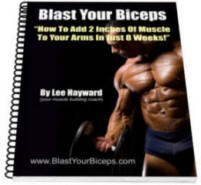
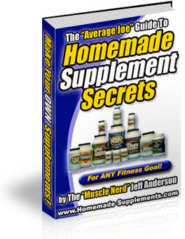
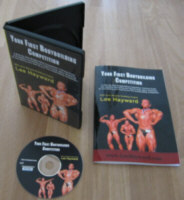


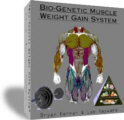
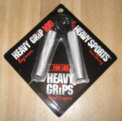

Hey,
ReplyDeleteI just wanted to add that vitamin C also helps decrease cholesterol.
cholesterol actually is involved with the breakdown of muscle tissue.
WOW! Thanks Lee for the list of vitamin & miniral intake. Very informative. Keep up the good work. I've learned so much from you.
ReplyDeleterobert Valdes
respected sir lee hayward
ReplyDeletei read ur articles of body building
my age is 43 with weight of 60 kgs since at the age of 20 i use to do wt building exercise at gym was irregular and was not getting result at 43 i am thinking of building up my body with a height of 5.7 feet and weight of 60 kgs can i do it
i have lactose intolerence and it milk causes diarrhoea and i got I B S irritable bowel syndrom so when i take excess food i dont digest it well
what should i do i got a home gym at my home too and i work out a lot at my clinic with my patients
kindly guide me
dr jarsis. bonesetter
Hay Lee, William Freebody III Here, could you share some tips on what I can do to bend a quarter with my bear hand, then I can do the sky dance without taking British steroids
ReplyDeleteYour a legend Mr Hayward, everything that you say is spot on and to the point, the vitamin and mineral list was very informative, as with all the information you share.
ReplyDeleteCheers
Simon
This is a perfect post. It makes so much sense. Thank you!
ReplyDeletebodybuilding competition
ReplyDeletehey lee dont forget vitamin ceeee!
ReplyDeletethanx for all the useful info. btw i just got your blast your bench program and just wanna say its tits dude.thanx again.
ReplyDelete